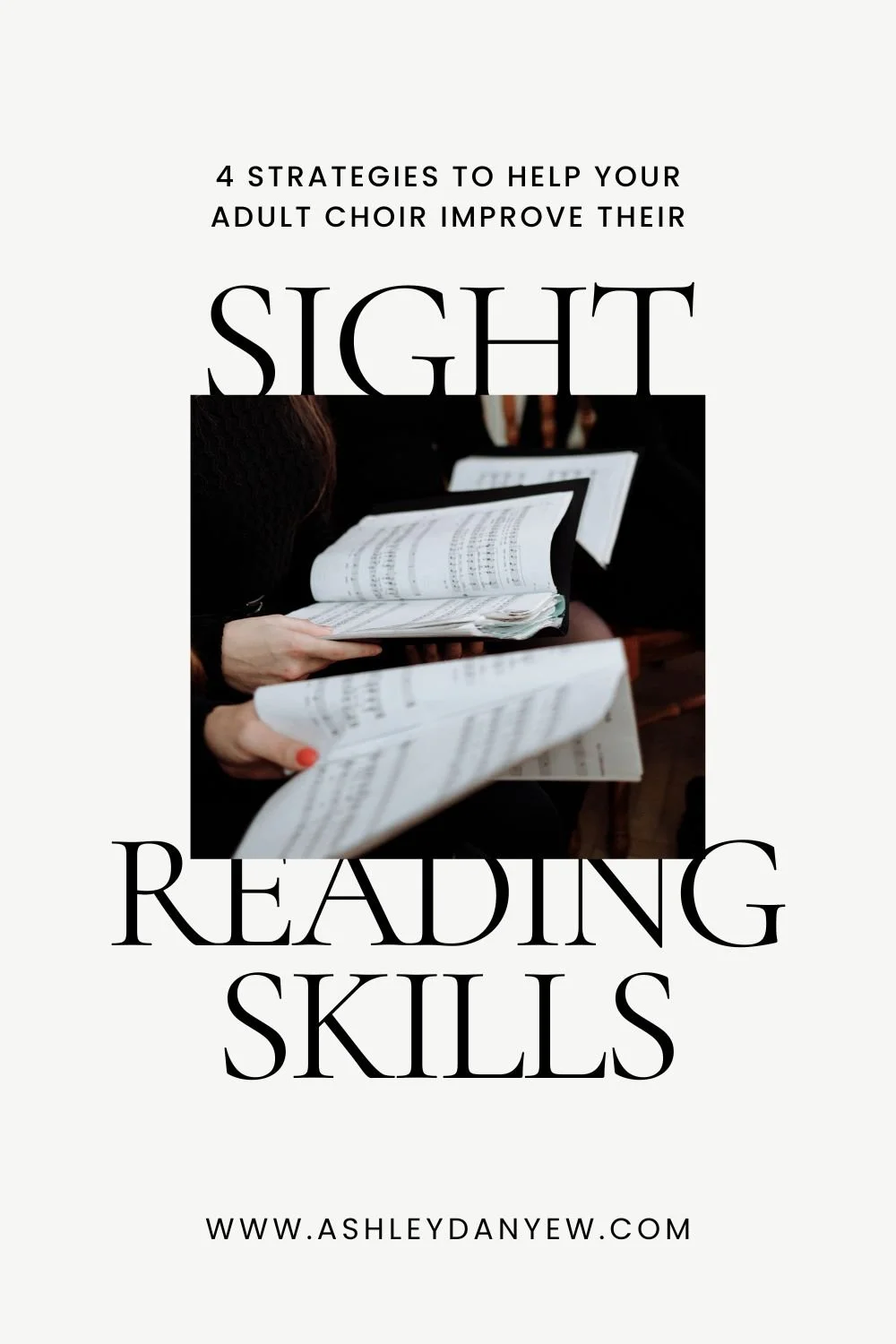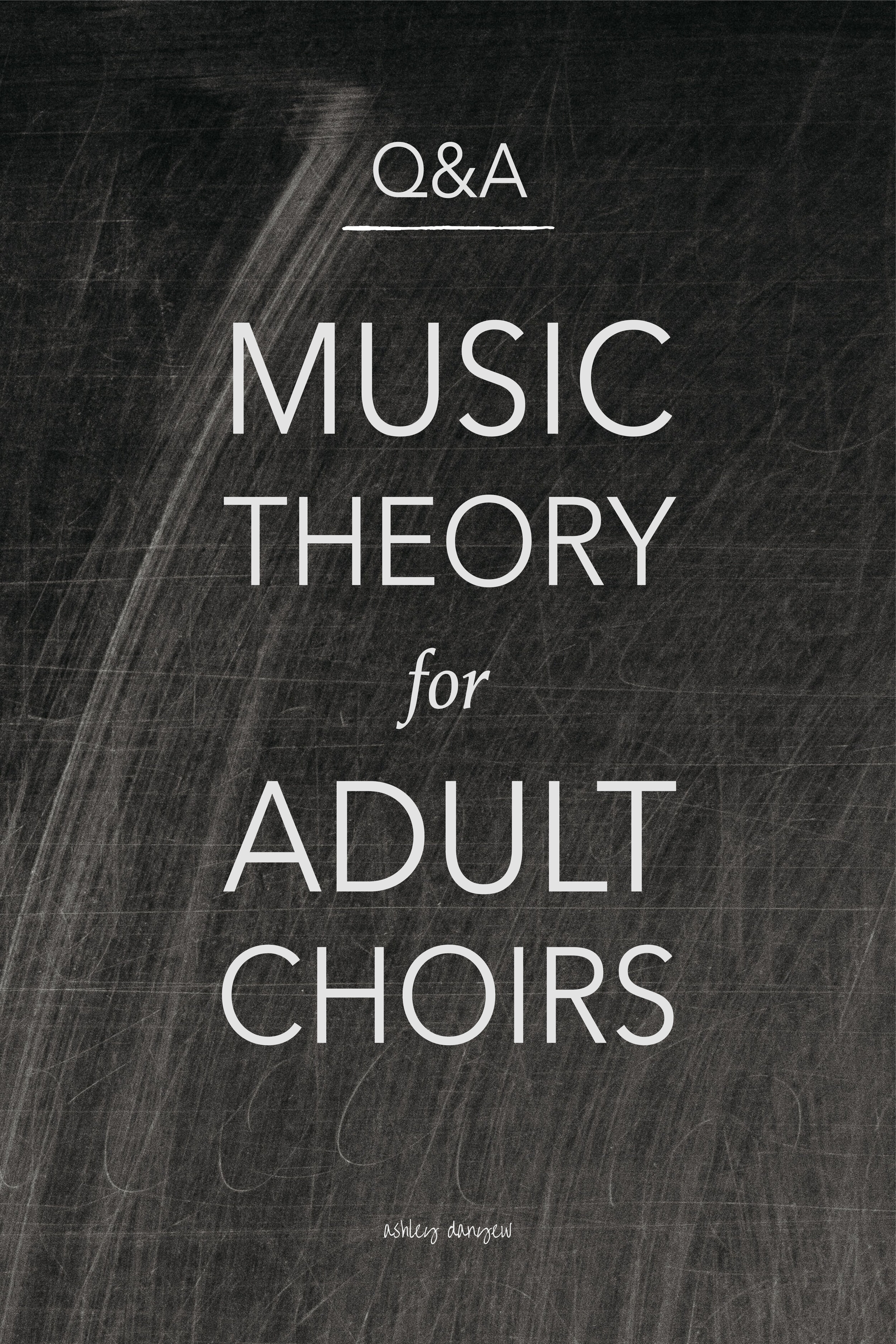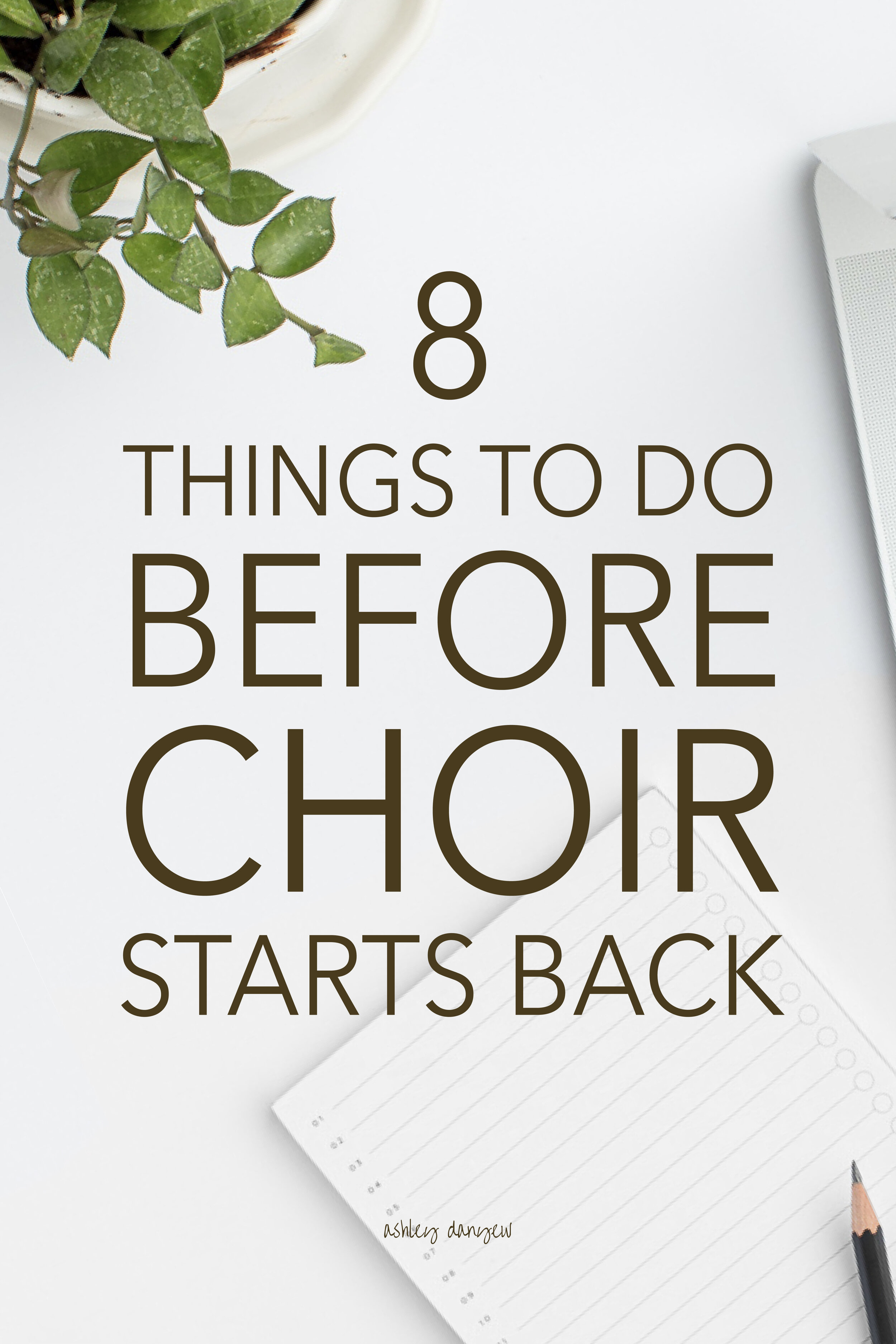Have you ever done a year in review for your choir year? Have you taken time recently to evaluate yourself and your teaching?
Do you set goals for your choir at the beginning of the year, or make a mental list of things you'd like to accomplish?
Taking time for reflection and evaluation is a healthy and productive way to check-in and stay engaged in your work.
It provides a useful framework for goal-setting, and it's also a vital part of the learning process—taking the experiences you've had this past year, observing them from a new vantage point, and considering what you've learned and how this will affect your work in the future.
Before summer vacations and trips to the lake and slow afternoons on the porch take over your schedule, take some time to reflect back on your choir year.
Carve out some time when you can sit down and really dig deep. The whole process may take you only a few hours, but you may find it helpful to do a little bit of reflection and evaluation each day during the course of a week, or so.
However you choose to do it, here are a few questions you might consider as you reflect back on your choir year:
16 Reflective Questions for Choir Directors
Please note: some of these questions are from Lara Casey in her goal-setting series, and from Karol Kimmel in her post, "Evaluating Your Choir Program: Children's Choir, Part 1."
1. What worked well this year?
This might be things related to rehearsal structure or building community among your singers, organizational processes or collaborating with other staff members, worship planning or seating plans.
2. What were some of your favorite moments?
Be specific. Write down anything that comes to mind: maybe an interaction with a choir or congregation member, a moment in rehearsal, or a time in worship.
3. What did you learn from what worked well?
Write down at least 2-3 specific things.
Free Resource
The Choir Year in Review Workbook
Take some time at the end of your choir year to reflect on and evaluate what worked well and what didn't work. Where did you see signs of growth and where is there room for improvement? This workbook includes the 16 questions in this post plus space to write in your answers.
4. What didn't work this year?
Again, this might be things related to rehearsals or organizational processes, worship-planning or the structure of your service, communication issues, etc. Where is there room for improvement?
5. What were your biggest challenges?
What left you feeling drained or frustrated? What were the hardest and most challenging moments of the year?
6. What did you learn from what didn't work?
Write down at least 2-3 specific things.
7. How did you grow as a musician and leader this year?
What did you learn? What made you a better teacher/director/leader/accompanist/singer this year? Did you do any professional development? Did you work to develop a new skill or improve at something? Did you pick up a new instrument or try your hand at composing?
8. What do you want to change or do differently next year?
Big or small, think about what you might like to try or change or do differently next year. Maybe it’s a new rehearsal order, a refreshed weekly schedule, or a new organizational system or structure.
Related post: 5 Things to Organize in Your Church Music Program
9. In general, was the level of music you chose appropriate for your choir?
If you feel like some of the things you chose were too challenging, what would your choir need to learn in order to make those anthems more attainable?
Related post: How to Choose Music for Your SAB Choir (+ 18 Anthem Ideas)
10. What kind of music would you like to introduce to your choir next year?
Perhaps you'd like to introduce more musical variety to your choir next year or choose an anthem in a new language or by underrepresented composers. Or, perhaps you'd like to do some music that helps them learn and develop a new musical skill of some kind.
Related posts:
Music by Black Composers: 108 Sacred Choral Anthems (SATB)
48 Anthems by Women Composers (3-part and SATB)
11. What supplies in your choir room need to be replenished?
Pencils, folders, labels, whiteboard markers, etc.
12. Is there anything (supply-wise) you don't currently have that would be helpful or useful to you or your choir members in some way?
Whiteboard/SMARTboard/projector/screen, bulletin board, label maker, portable speaker, clock, etc.
13. Did you recruit any new singers or families this year? If so, which strategies were most effective?
Think back to how those interactions first started: was it a personal invitation from you or a friend? Was it an announcement in the bulletin? If you work with youth or children, was it a special mailing or Youth Group or VBS?
Related post: How to Recruit New Choir Members This Fall
14. What can you do to recruit and engage new singers next year?
Think about strategies that worked well this year and how you might be able to use them again next year. Also, consider a few new strategies to try.
Related post: Non-Salesy Ways to Recruit and Sustain Your Music Ministry
15. How can you serve your choir members well?
What do they need? How can you connect with them in a personal and meaningful way? And how can you balance serving and resting to ensure you don't burn out?
16. What one musical skill do you want to focus on next year?
Think about your choir and their skill level. What’s one thing you want to help them develop as musicians and singers?
Free Workbook
Don't forget to download your free PDF workbook to help
you review and evaluate your choir year.
I'd love to hear from you:
Do you take time at the end of the choir year to do an end-of-the-year evaluation or review? How do you reflect on the year and plan for next year?







































